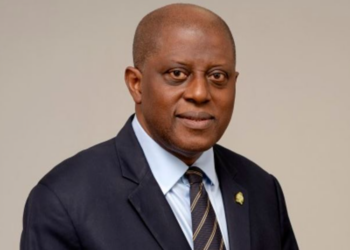Data from the Capital Importation Report for the third quarter of the year shows that approximately 78% of the capital imported into Nigeria comprised foreign loans, amounting to $507.71 million.
This occurred as foreign capital inflow into Nigeria plunged to its lowest level in over a decade, totalling $654.65 million in Q3 2023, according to the latest report from the National Bureau of Statistics (NBS).
Further analysis indicates that the value of foreign loans received by the country in Q3 2023 was 18% lower compared to the $619.16 million recorded in the same quarter of the previous year. Moreover, there was a 34.19% decline relative to the $771.53 million secured in Q2 2023. This decrease is likely attributed to the current government’s strategy of favouring borrowing from domestic sources over foreign ones.
In fact, for the first time since 2007, under the administration of former President Olusegun Obasanjo, there was a reduction of about $1.57 billion in the country’s external debt in Q3 2023.
However, this decrease was primarily due to debt servicing activities carried out in the quarter. These activities included redeeming a $500 million Eurobond and making a $413.86 million principal repayment, the first instalment of the $4.3 billion loan obtained from the International Monetary Fund (IMF).
FDI is less than 1% of capital import
Foreign Direct Investment (FDI) accounted for only 0.091% of the total capital imported into Nigeria, falling short of 1% despite the current government’s efforts to attract investments.
In Q3 2023, Nigeria attracted FDI worth $59.77 million, marking a decline of 26.86% compared to the $81.72 million secured in the same quarter of 2022. Additionally, this figure represents a 30.52% decrease from the $86.03 million recorded in the previous quarter of the same year.
This indicates that the current investment initiatives under the administration of Bola Tinubu have not yet produced significant near-term results.
More Insight
- Struggling with low foreign exchange reserve and forex scarcity, it appears that Nigeria has to turn to foreign lenders for FX.
- About two months ago, the Minister of Finance and Coordinating Minister of the Economy, Mr. Wale Edun, said that around $10 billion of forex inflows is expected within weeks rather than months.
- Also, about a week ago, the Federal Minister of Information and National Orientation, Mohammed Idris, said Tinubu’s overseas trips, have resulted in over $15 billion in Foreign Direct Investment (FDI) pledges across different economic sectors.
- However, none of these promises have resulted in actual foreign direct investment or foreign portfolio investment.
- Nigerians can only hope that in the next capital importation report of the NBS, these pledges and expected forex inflows will reflect towards changing the trajectory of the current economic situation.


























Focusing on foreign investment as a primary source is really contrary to arguments Asiwaju Tinubu used to make in the past before he became President.
Long before foreign investors flooded China, the country had protected and grown its local industry for decades, from an inefficient system to globally competitive . Let’s focus more on the local guys.
Newsreport shows local companies have piled up trillions in cash. Local funds hold more trillions. There’s trillions of naira in Nigeria to spend. Let’s focus on them. Create funds for them to finance local development with government guarantees.
Twnty years from today, foreign ivestments will flood Nigeria when they see how our local businesses have grown in competence and capabilities